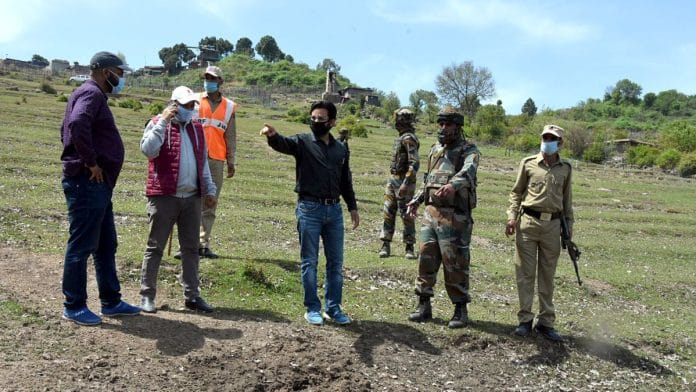New Delhi: One of the worst-kept secrets of the Indian administrative system is that politicians often use the threat of transfers to keep civil servants under control. A new study details how politicians not only leverage this threat to exert control over civil servants, but also to corrupt them.
Using tehsildars—officials responsible for administering land records and regulating land transactions at their respective local jurisdictions—as study subjects, the working paper Bureaucrat Assignments as Instruments of Political Control: Evidence from Land Administration Officials in India analyses how politicians take advantage of civil servants preference to be posted closer to their hometown and the threat of transfer to facilitate rent-seeking activities.
The threat of bureaucratic transfers compels even honest officers to bend land regulations in favour of the builders who provide “quid pro quo finance to politicians”, the study says. It sheds light on the limits of civil service laws and their ability to safeguard those who fall under its purview from such transfers and facilitating corruption on behalf of political leaders.
The research, which talks about how the politician-real-estate developer nexus operates in practice, also contributes to literature on bureaucratic autonomy and its weaknesses as well as corruption in developing countries, the study notes. Available on OSF Preprint website, a scholarly commons, the study is yet to be peer-reviewed
Using bureaucratic preferences
While the assignment of civil servants is subject to specific rules, the Members of Parliament (MPs) and the Members of the Legislative Assembly (MLAs), especially those with ministerial positions, have an extraordinary control over these appointments. This power, when used strategically, is a potent tool of political control, the study notes.
According to the research done by Devesh Kapur, University of Pennsylvania; Aditya Dasgupta, University of California; and Anustubh Agnihotri, Ashoka University, civil servants across the country, services, and levels of appointment (central to local), generally possess a benign but strong preference to be posted in a specific location, mostly closer to their hometowns and with urban amenities. This preference is strong enough for them to even give up some part of their income in return for their preferred posting.
However, this acts as a vulnerability, which can be leveraged by politicians in power to control or corrupt. “When bureaucrats have homogeneous preferences, assignments are used as ‘carrots’ or as tournament-like performance incentives, but when bureaucrats have heterogeneous preferences – for instance, a home bias – they are used as ‘sticks,’ with bureaucrats being placed in their preferred locations but threatened with transfer to a less desirable location,” the study says.
Leveraging either the vulnerability or the greed of the civil servants acts as the key instrument to assert control over the bureaucracy at-large and erode its autonomy, the study further says.
Politician-developer nexus & tehsildars
The research uses the case of 509 tehsildars, across 173 districts and 33 states and Union Territories, encompassing 1.3 crore citizens, to elucidate its theory.
Tehsildars are land revenue officers, who originated during the Mughal-era administration. In the present context, they are state-level civil servants who head “land administration offices” in tehsils. There are over 6,000 tehsils or sub-districts in the country.
While their key functions include administering lands—“maintaining land titles, managing land records, and issuing certificates, as well as handling land disputes”—one of their most significant powers is over the conversion of agricultural land for “industrial, commercial, or real-estate development” use.
As agricultural land—which is relatively cheaper—is converted to commercial, industrial or residential land, its value tends to increase significantly. Therefore, tehsildars come under intense pressure from the political class to facilitate these land conversions. In turn, the developers compensate the politicians through campaign donations and finance.
“This places tehsildars at the centre of the political economy of land transactions which generate billions of dollars in market value annually, making them a significant target of rent-seeking political pressure from real-estate developers and politicians,” notes the research paper.
“Using remote-sensing data, we estimate that between 2015 and 2020, approximately 19,452 sq km of previously rural areas became urban, built-up land annually, generating billions of dollars in market value,” it adds.
Although the tehsildars are recruited through examinations and civil service laws provide them some protection against dismissal, they are still vulnerable to transfers by politicians.
The authors contend that such politician-bureaucratic control dynamics go beyond just tehsildars and can be found across the Indian administrative system.
“This is likely to be the case in territorial bureaucracies of the type found in India and other Commonwealth countries, where bureaucrats are frequently shuffled horizontally around geographical jurisdictions,” the study says. “But also in more local settings where frontline bureaucrats like teachers, police, doctors are rotated around or assigned to different neighbourhoods or jurisdictions.”
(Edited by Sanya Mathur)
Also Read: Only 33% joint secretaries belong to IAS. How the service’s dominance has eroded under Modi govt






